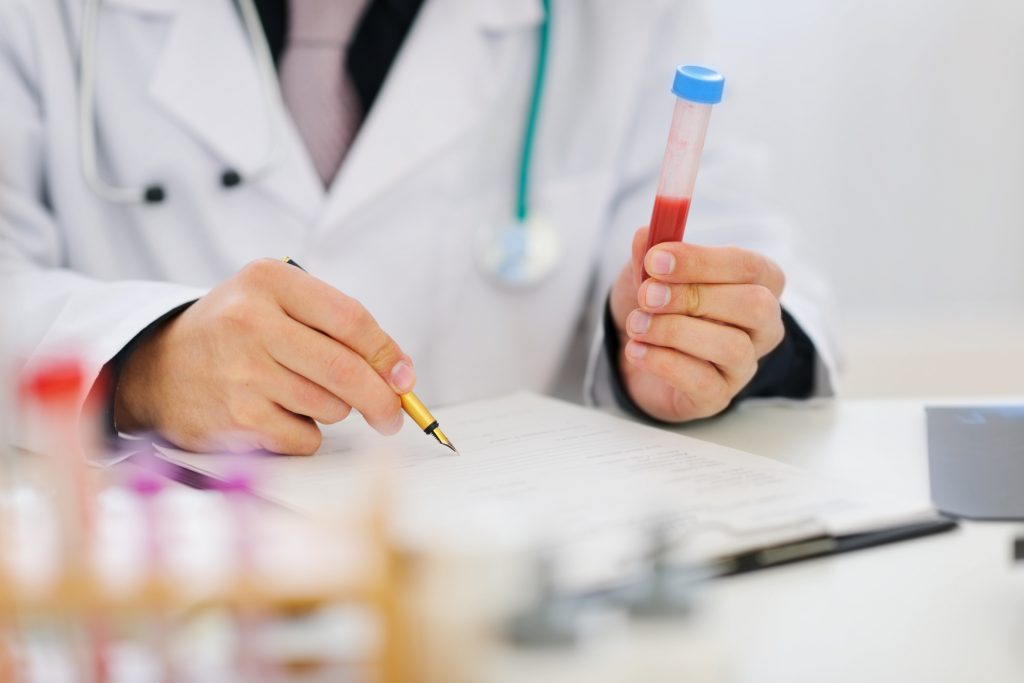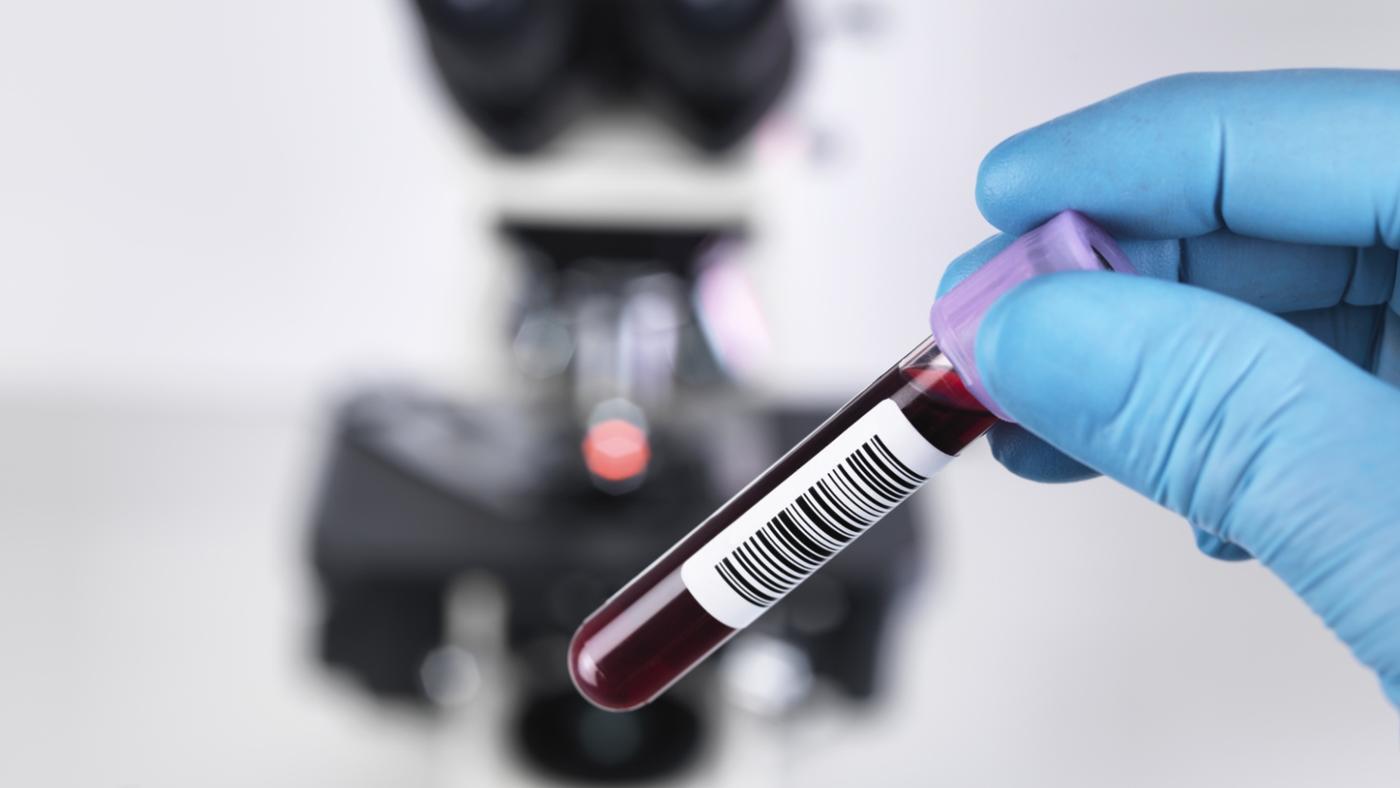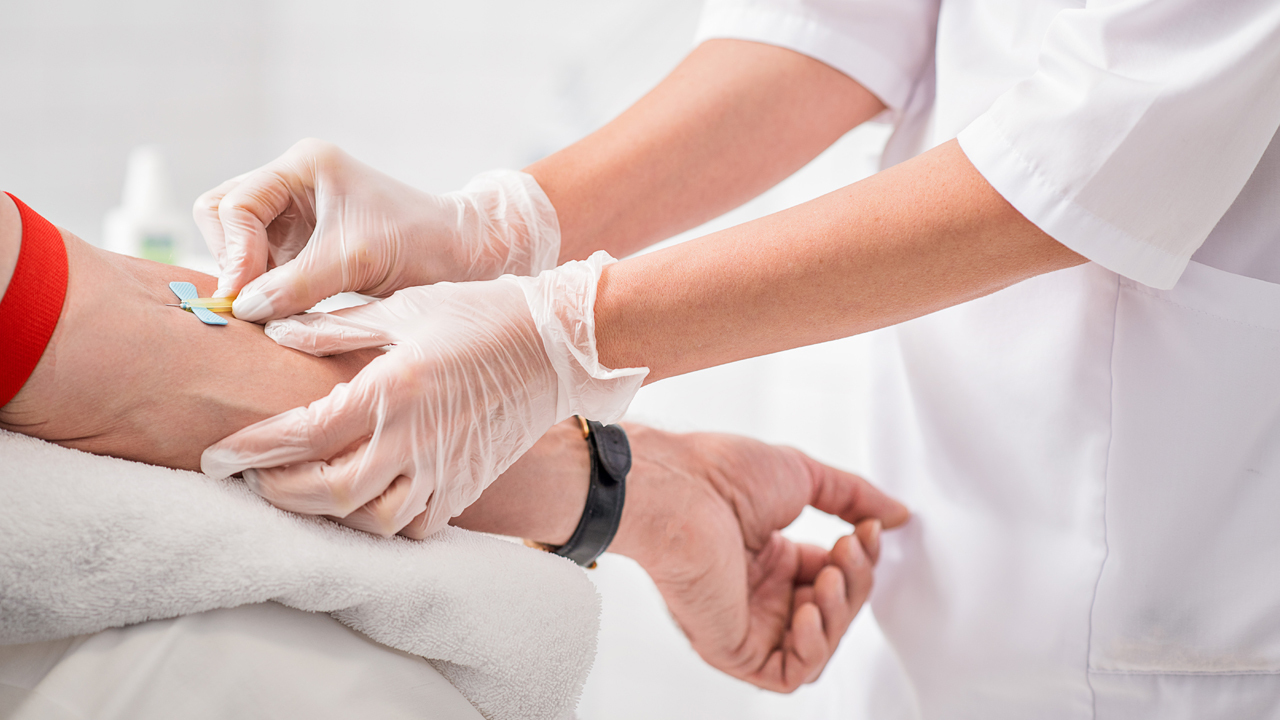Blood testing for HIV using ELISA
A laboratory test for HIV infection is carried out to detect the human immunodeficiency virus in the blood. There are several testing methods, but the most widely used are the following: determination of antibodies and detection of protein structures of HIV infection. The most widely used blood test for HIV infection is the ELISA method.
In what cases is an ELISA test taken for HIV?

The HIV ELISA test is recommended for the following categories of people, as they are associated with a high risk of infection:
- injection drug addicts;
- homosexuals;
- persons who ignore barrier contraception;
- persons practicing anal and oral sex;
- women providing intimate services for money.
Clinical indications for testing blood for HIV infection include:
- increased body temperature lasting more than a month;
- loose stools that bother you for more than a month;
- losing weight by 10% or more for no apparent reason;
- prolonged, often recurring pneumonia that does not respond to standard treatment;
- persistent cough (more than one month);
- frequently occurring, protracted parasitic, viral, bacterial diseases;
- septic complications;
- enlargement of lymph nodes and their groups for more than one month;
- subacute encephalitis;
- dementia in a previously healthy person;
- the appearance of AIDS-indicative diseases (opportunistic infections, neoplasms, wasting syndrome, etc.).
Thus, the decision to conduct a blood test for HIV using the ELISA method can be caused by various reasons:
- Confirmation of a positive HIV status will allow you to receive the necessary treatment in a timely manner, which will prevent serious and life-threatening complications. With human immunodeficiency virus, many concomitant diseases (for example, syphilis) are treated according to other regimens. In addition, with HIV infection, it is extremely important to regularly check your immune status and other indicators in order to take the right doses of drugs to prevent the development of AIDS;
- A negative HIV ELISA test leads to serious considerations regarding lifestyle and allows you to make a decision on how to act most safely in relation to HIV infection. Also, knowing your HIV status is necessary to ensure the safety of your sexual partner.
- Timely diagnosis of the human immunodeficiency virus makes it possible to prevent infection of the child during pregnancy and childbirth.

Some people find reasons why they refuse to take the test:
- Confidence in the absence of risky situations regarding the disease.
- Fear of getting a positive result and resulting depression.
- Fear of losing social position, worsening relationships with loved ones and acquaintances.
- Fear of disclosing medical confidentiality of diagnosis.
One way or another, if a person is thinking about donating blood for HIV infection, then there are reasons for this, and testing should not be put off for a long time.
How is HIV infection diagnosed?
The set of diagnostic measures includes two stages:
- Confirmation of the fact of HIV infection;
- Establishing the stage of the disease.
At the first stage, an ELISA for HIV is performed - enzyme-linked immunosorbent assay. This is a screening technique (i.e. selection) - identifying presumably infected people. Antibodies to infection are determined by means of other antibodies to the desired antibodies (antibodies against other antibodies).
All screening tests must be highly sensitive so as not to miss an infected person, so the reliability of HIV ELISA is not always high. Thus, an ELISA test for HIV may show a positive result (“probably infectious”) in uninfected individuals.

The reasons for a false-positive HIV ELISA test are most often associated with autoimmune disorders:
- rheumatic diseases;
- systemic lupus erythematosus, etc.
False-positive tests sometimes occur during pregnancy and some infectious diseases. Professional errors and accidents cannot be excluded.
False-positive ELISA results for HIV diagnosis occur when using different test systems with a frequency of 0.02-0.5%.
If a patient has a positive HIV ELISA result, this means that further testing should be done to confirm the infection. When carrying out an enzyme immunoassay blood test for HIV, in 3-5% it is possible to obtain a false negative result. This occurs in the following situations:
- the infection occurred recently and the antibody level is still low;
- the terminal (final) stage of the disease, which is characterized by severe damage to the immune system and a profound disruption of the processes of antibody formation.
Therefore, if there is evidence of contact with someone infected with HIV, repeat tests are performed after two to three months.

If the HIV ELISA is positive, and this result is determined twice, the patient’s blood serum is sent to the regional laboratory, where they use the immunoblotting technique, which exceeds the accuracy of the HIV ELISA.
When will the ELISA test show a reliable result?
HIV ELISA results can only be obtained several weeks after infection. The study does not detect the virus itself, but rather detects antibodies to its proteins. Sometimes antibodies appear in the blood in sufficient quantities within two to three weeks, but this does not happen for everyone.
How long does it take for an ELISA test for HIV to be reliable: for most people, the process of antibody formation (seroconversion) takes a lot of time. HIV ELISA is more reliable when about three months have passed after the suspected infection.

After three months, the determination of HIV by ELISA testing shows reliable indicators in 95-98% of patients, i.e. in most cases. Some people develop antibodies within three to six months.
You can completely eliminate infection with the virus after donating blood six months later. However, for many, waiting for the test result is a very difficult ordeal. If a person has not had dangerous contacts with partners known to be infected with HIV, the likelihood that he will be among the people whose results are unreliable after three months tends to zero.
Where can I get tested?
You can take the test at any public or private medical organization. The duration of the HIV ELISA test is two to three days. In some clinics, results can be obtained the next day. Thus, how much HIV ELISA is done depends on the specific institution.
It is recommended to clarify in advance how long it takes to perform an ELISA blood test for HIV, as this is a tedious and unpleasant waiting period.
Considering that waiting for results can be a very unpleasant period, it is best to clarify this issue in advance, before taking the test. You can also find out whether weekends and holidays will affect the timing of the test.

The diagnosis is made based on the results of immunoblotting, the accuracy of which is 99.9%. If this analysis gives a negative answer, then the previous ELISA study was false positive, and the person is absolutely healthy.
Blood reactivity during HIV ELISA is not normal; this means that the blood sample repeatedly gives a positive result. In this case, a confirmatory test is performed - immunoblotting.
It should be borne in mind that the result of a blood test for HIV in a sexual partner cannot indicate a person’s immune status. Even if the partner is HIV positive, infection does not always occur. However, you should choose a reliable method of protection and regularly get tested for both partners.
Preparation for analysis and procedure progress
In most cases, blood is taken for HIV in the presence of an identity card (in order to count those infected and eliminate the possibility of forgery of the result). At the same time, every person has the right to be tested anonymously. In this case, a code is assigned that identifies the result.
Preparation for analysis includes the following points:
- abstinence from sexual intercourse;
- avoiding drinking alcohol and smoking on the eve of blood sampling;
- limiting fatty and salty foods the day before the test.
Blood is taken in the morning on an empty stomach. Biological material is collected through venipuncture. The volume of blood withdrawn is about 5 ml.
Thus, whether to be tested for HIV or not is a purely individual matter. However, it must be taken into account that many people living with the human immunodeficiency virus do not notice any symptoms for a long time and are not aware of their illness. Therefore, if potentially dangerous situations have occurred, you should overcome your fear and undergo an examination.
